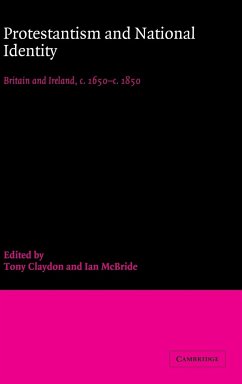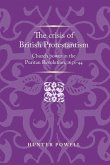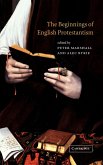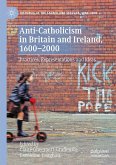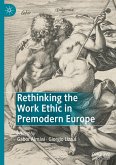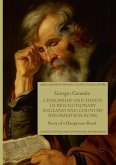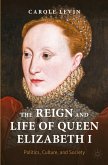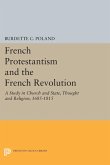This volume traces the complex contribution which protestantism made to national identity in the British Isles between the Stuart and the Victorian age. Often challenging existing work, the essays both question whether nationalism was a secular and 'modern' phenomenon, and ask whether Protestantism could support any simple vision of a united, imperial, and 'elect' Britain. Covering a wide variety of subjects, the authors show that whilst the reformed faith was always central to 'British' self-awareness, it could also divide the peoples of Britain and Ireland, could cast doubt on their greatness, and could dissolve any insistence on the uniqueness of these nations. The collection thus takes the study of religion's contribution to nationality beyond simple acknowledgement of its importance, and suggests radical new ways to understand British and Irish development during the 'long eighteenth century'.
Table of contents:
Introduction; 1. The trials of the chosen peoples: recent interpretations of protestantism and national identity in Britain and Ireland Tony Claydon and Ian McBride; 2. 'I love my king and my country, but a Roman Catholic I hate': anti-catholicism, xenophobia, and national identity in eighteenth-century England Colin Haydon; 3. Confessional state, or elect nation? religion and identity in eighteenth-century England Jeremy Black; 4. 'To protect English liberties': the English nationalist revolution of 1688-89 Steven Pincus; 5. A history of variations: the identity of the eighteenth-century church of England Brian Young; 6. The British dimension, religion and the shaping of political identities during the reign of Charles II Tim Harris; 7. The bible and national identity in the British Isles, c. 1650-c. 1750 Scott Mandelbrote; 8. Protestantism, presbyterianism and national idenity in eighteenth-century Scottish history David Allan; 9. Protestantism, ethnicity and Irish identities, 1660-1760 Toby Barnard; 10. 'The common name of Irishman': protestantism and patriotism in eighteenth-century Ireland Ian McBride; 11. The island race: Captain Cook, protestantism, evangelicanism and the construction of English national identity 1760-1800 Kathleen Wilson; 12. A transatlantic perspective: protestantism and national identities in mid-nineteenth-century Britain and Ireland John Wolffe.
The years 1650-1850 saw the creation of the United Kingdom and the emergence of Britain as a world power. According to much recent literature protestantism was central to this process. This collection challenges this religious contribution to 'Britishness' and suggests radical new ways to understanding the 'British problem'.
A challenge to the much-promoted thesis that protestantism was central to the rise of Britain as a world power.
Table of contents:
Introduction; 1. The trials of the chosen peoples: recent interpretations of protestantism and national identity in Britain and Ireland Tony Claydon and Ian McBride; 2. 'I love my king and my country, but a Roman Catholic I hate': anti-catholicism, xenophobia, and national identity in eighteenth-century England Colin Haydon; 3. Confessional state, or elect nation? religion and identity in eighteenth-century England Jeremy Black; 4. 'To protect English liberties': the English nationalist revolution of 1688-89 Steven Pincus; 5. A history of variations: the identity of the eighteenth-century church of England Brian Young; 6. The British dimension, religion and the shaping of political identities during the reign of Charles II Tim Harris; 7. The bible and national identity in the British Isles, c. 1650-c. 1750 Scott Mandelbrote; 8. Protestantism, presbyterianism and national idenity in eighteenth-century Scottish history David Allan; 9. Protestantism, ethnicity and Irish identities, 1660-1760 Toby Barnard; 10. 'The common name of Irishman': protestantism and patriotism in eighteenth-century Ireland Ian McBride; 11. The island race: Captain Cook, protestantism, evangelicanism and the construction of English national identity 1760-1800 Kathleen Wilson; 12. A transatlantic perspective: protestantism and national identities in mid-nineteenth-century Britain and Ireland John Wolffe.
The years 1650-1850 saw the creation of the United Kingdom and the emergence of Britain as a world power. According to much recent literature protestantism was central to this process. This collection challenges this religious contribution to 'Britishness' and suggests radical new ways to understanding the 'British problem'.
A challenge to the much-promoted thesis that protestantism was central to the rise of Britain as a world power.

